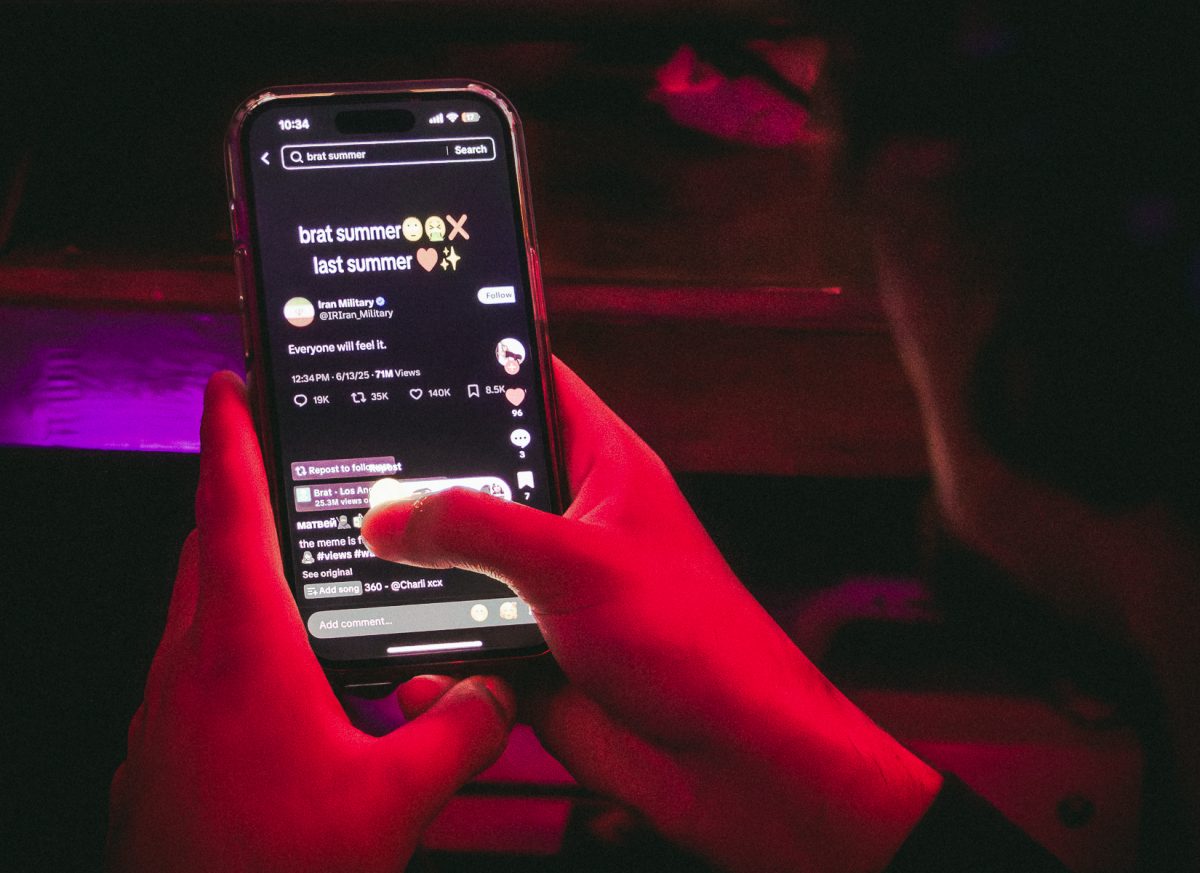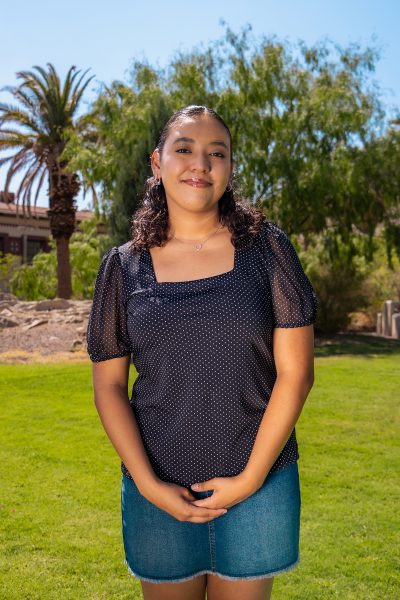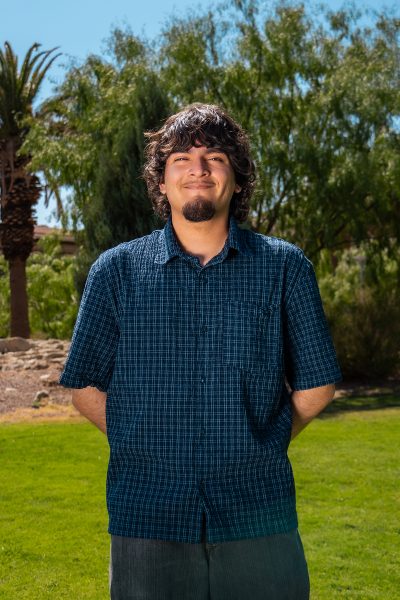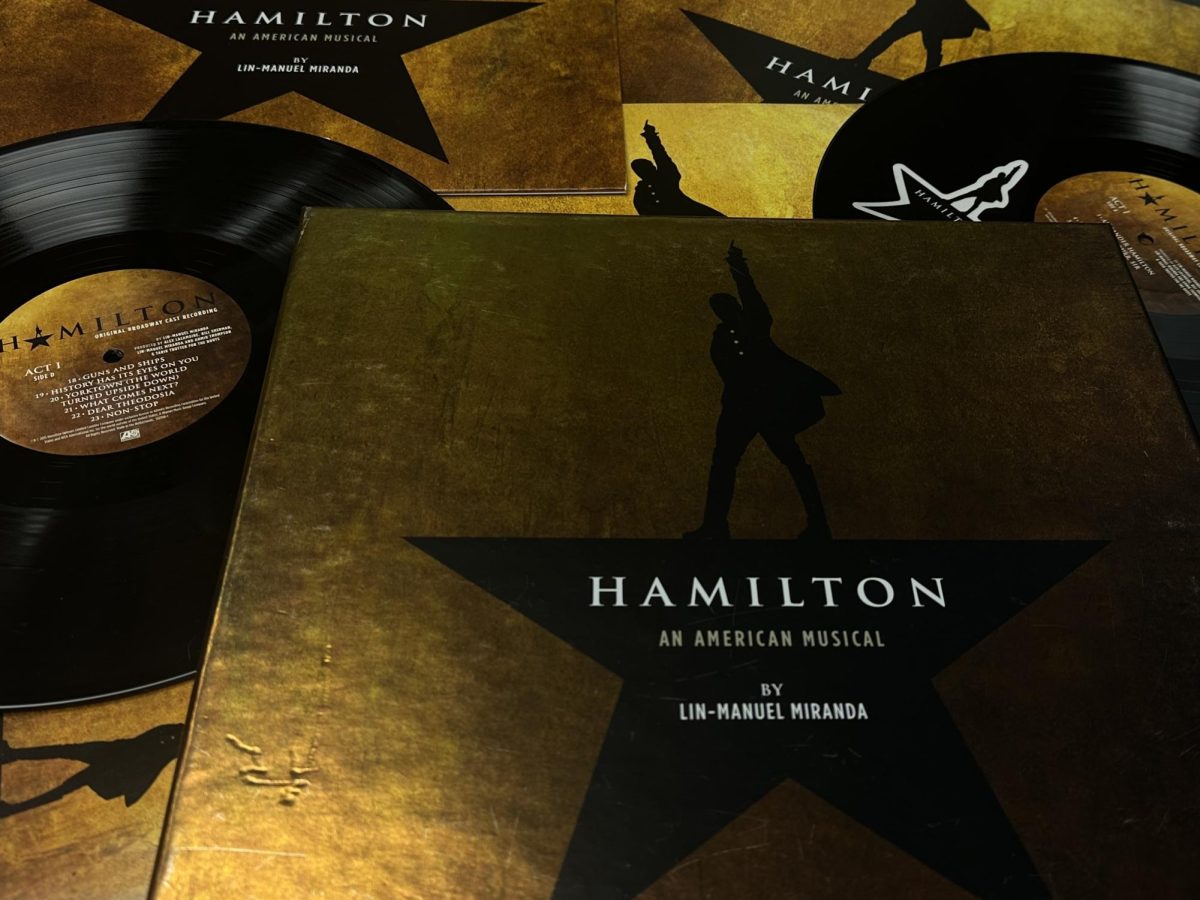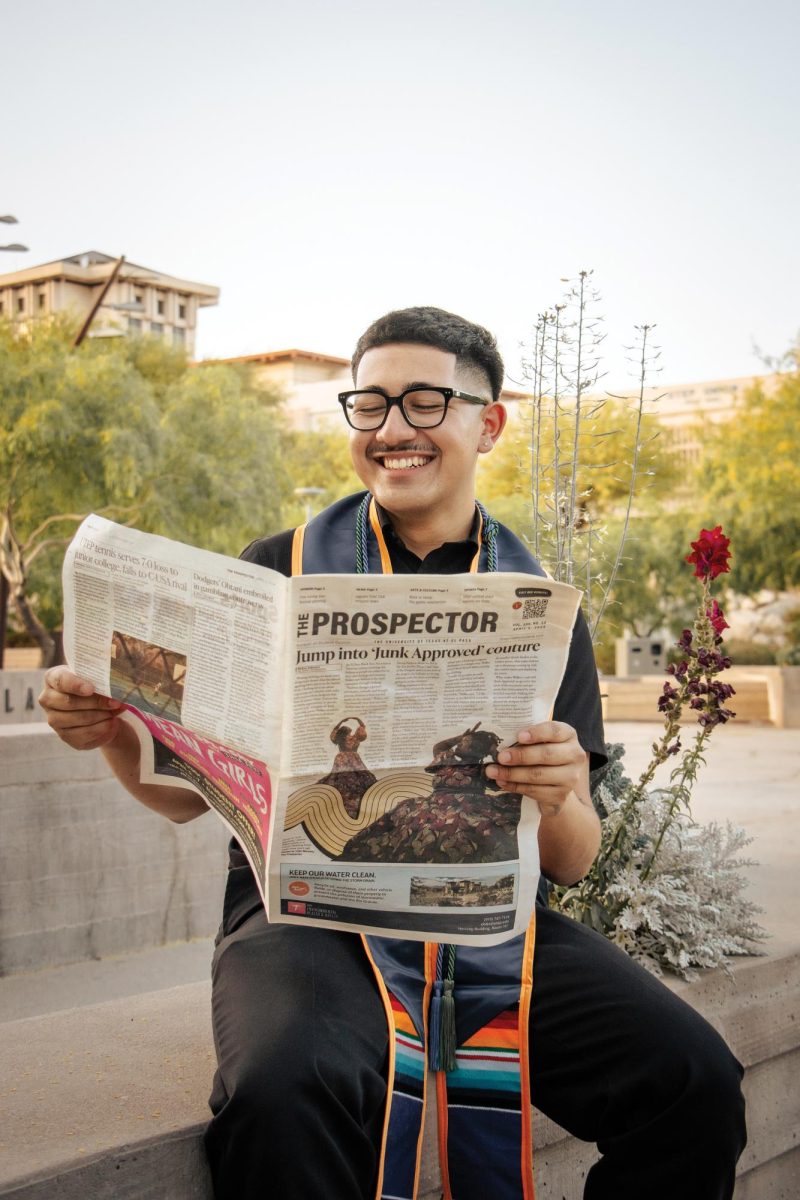After the U.S military attacked three key nuclear sites in Iran, tensions rose globally, and threats of a potential World War III filled online timelines. Gen Z started sharing memes using dark humor on social media platforms such as TikTok, Instagram and X, responding in a way that older generations may have seen as strange and at times, insensitive.
For many young people, it was more than just a joke but a coping mechanism. Sophia Hernandez, a 20-year-old biochemistry student, saw more meaning to the war memes than just simple laughs.
“I think they’re pretty funny for the most part, and to a degree, kind of educational. It helps me understand what’s going on with the world right now, since I really don’t watch the news,” Hernandez said. “We’re barely stepping into this world, and all of this is happening. We need a way to kind of cope together in a way, since these are the times when we feel divided amongst each other.”
Gen Z’s response to war discourse was wildly different from those of their parents and grandparents. While the jokes may be interpreted as dismissive or immature, Hernadez argued that the disconnect between generations was not about caring less but about reacting differently.
“Older generations have partially lived through this already, so they understand how serious it is and how we should be taking action. But when it comes to Gen Z …even though we do take it seriously, I feel like they expect us to react much stronger than the way we are, than the way we’re coping,” Hernandez said.
Claudia Rivera, 45, noted that the disconnect between generations’ reactions may be rooted in the different media environments they were brought up in.
“Growing up in the 90s, we had the Gulf War, so, we didn’t even understand what anxiety really was with these events,” Rivera said. “We didn’t get alerts every five minutes of something happening. We only got alerted when we came home and watched the nightly news. We just lived our daily lives. We didn’t have [mobile] phones back then, so we didn’t get the news as fast.”
Rivera, though, doesn’t fault Gen Z for how they processed this global event.
“The young people are just coping with what is going on right now and they need to have an outlet for it, so they’re making the memes,” Rivera said. “I think everybody has their right to feel however they feel, and there’s no right or wrong.”
For 18-year-old psychology major, Daniela Cruz, humor seemed like a natural reaction for Gen Z to have, especially in a time when breaking news is first shared and spread on social media.
“It’s more about relatability, because obviously, this is Gen Z’s first time living through a global event like this… and we’re seeing it firsthand, especially with President Trump posting live updates on Twitter [X],” Cruz said. “I feel like even the way we’re receiving the news, is subject to be memeified and to be joked about, because it’s like, ‘Wow, we’re finding out about a war on Twitter [X].’”
Despite finding relatability in the memes, Cruz acknowledges that the comedic response is not appreciated by every generation.
“For older generations that have actually been through other world wars and conflicts like this, I feel like it can be seen as insensitive, especially knowing that a lot of the people who are joking about it, aren’t being directly affected by the events,” Cruz said.
To Gen Z, tragedy has never been a distant concept but rather a constant in their upbringing. They were born into the aftermath of the 9/11 terrorist attacks, which led to growing up under the weight of national trauma, increased surveillance and the deepening of harmful stereotypes that painted Middle Eastern communities as threats – biases that Gen Z has had to confront and unlearn. They’ve watched school shootings take over news headlines, lived through a global pandemic which took the lives of millions, and scrolled through news of a potential nuclear war.
The truth is that the jokes were not always funny. But they were Gen Z’s own way of talking about the fear and confusion surrounding current events. It was a way to feel less alone when the world felt like it could be destroyed, when that destruction felt almost inevitable. In this war, humor was the defense.
Ximena Cordero is the web and copy editor at The Prospector and may be reach at [email protected]

